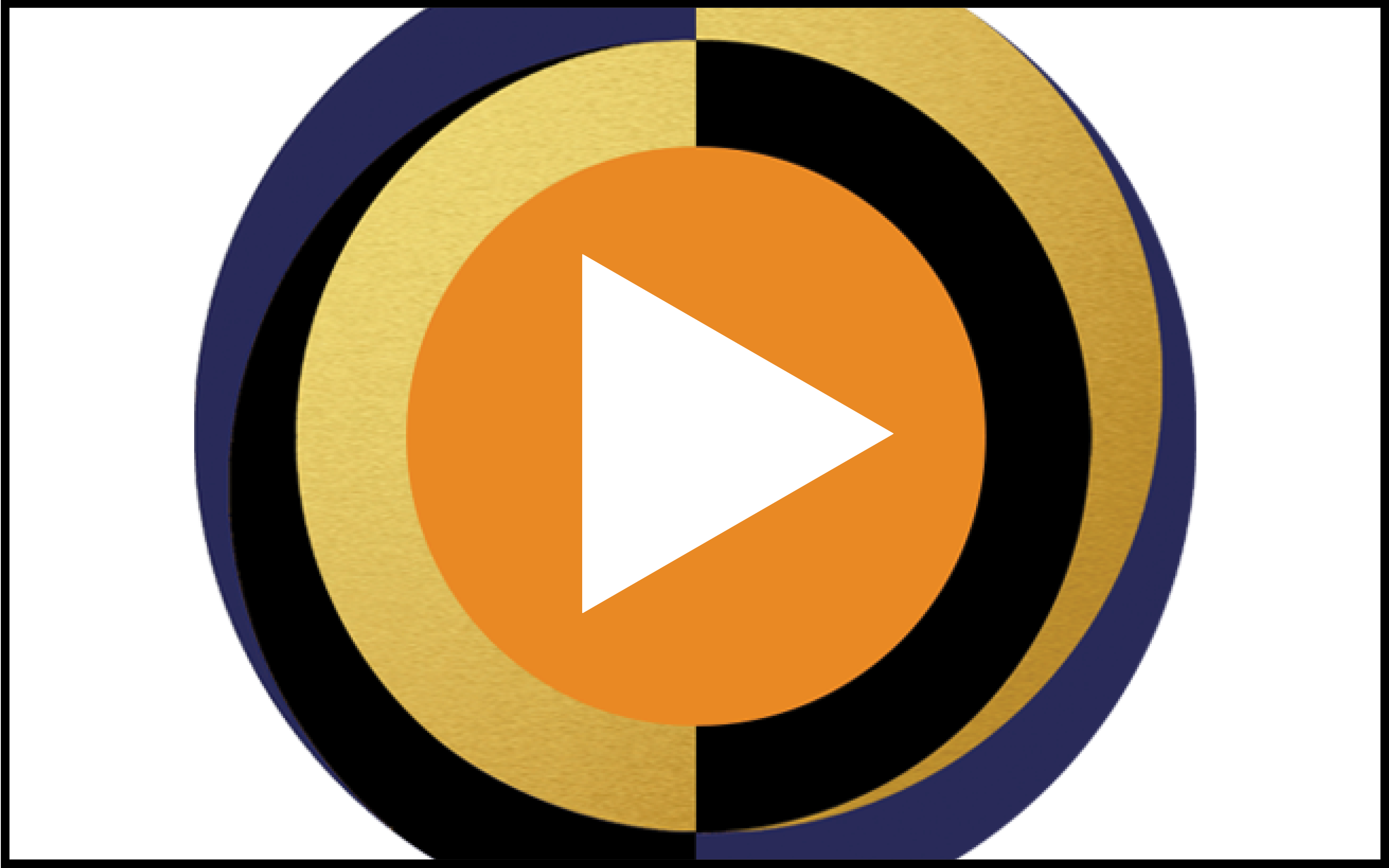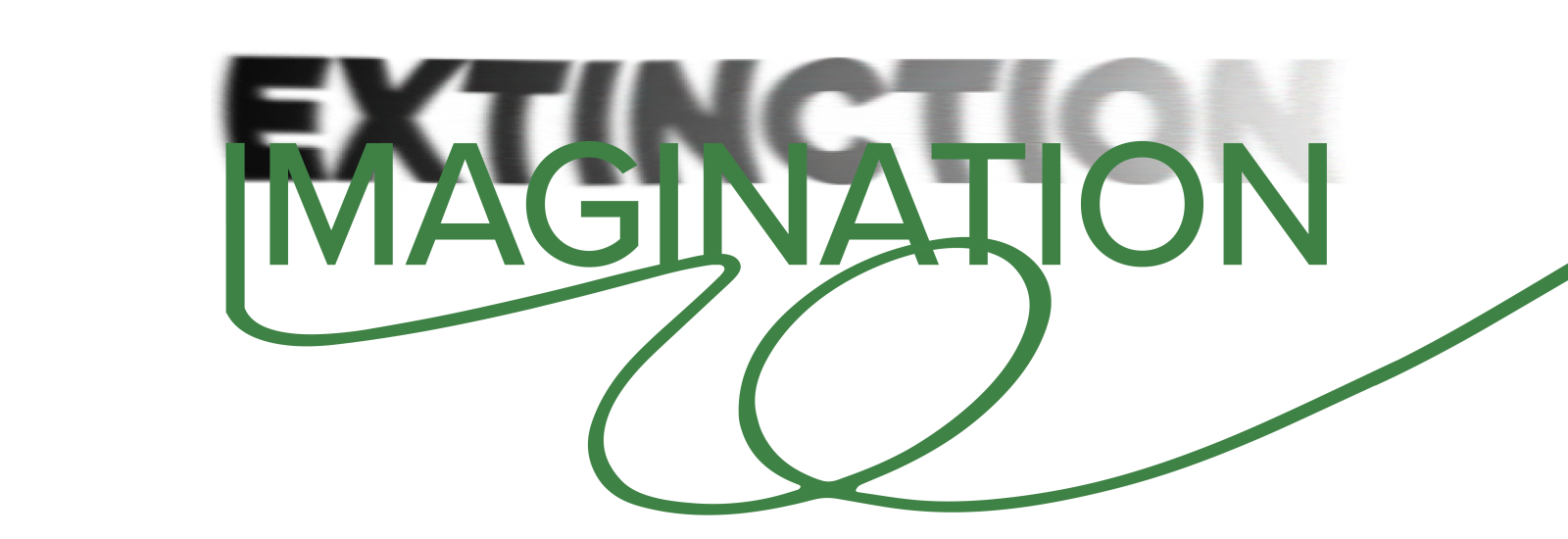2021-2022
About Extinction | Imagination
Extinction | Imagination brought together scholars and artists whose work engaged histories, present realities and future possibilities of extinction. Our goal was to create a space for conversations about loss and survival that could hold both mourning and world building. For the purposes of the Society of Fellows, we understood extinction as a range of existential threats to ecosystems, species, populations, cultures, languages and lifeways.
As the world faces unprecedented environmental, economic and health related threats — and in a moment in which a global pandemic and global awareness of racial violence and systems of inequality heighten our awareness of fundamental interdependencies — the frame of Extinction | Imagination invited scholars and artists to explore these pressing issues within an expansive, cross-disciplinary framework. This theme called for a dual vision that attended to structural and embodied relations contouring extinction as well as the role of imagination in crafting sustainable and liberatory responses to these threats and systemic inequities.
Extinction | Imagination brought together faculty working from a range of disciplinary and methodological perspectives to support scholarship, creative productions and community engagement projects that advanced conversations about the threats of phenomena like genocide; ecological devastation; global pandemics; global capitalism and wealth inequality and/or the radical possibilities of rising social movements; community organizing; sites of dissent and new democratic imaginaries.
GAHDT YouTube Channel
To view videos of previous Digital Dialogues, visit the GAHDT Youtube channel

Faculty Fellows
- Margaret Flinn
- Hannah Kosstrin
- Ben McKean
- Kris Paulsen
- Jacob Risinger
- Jasper Waugh-Quasebarth
- Carmen Winant
FACILITATOR
Wendy S. Hesford
Graduate Team Fellows
- Robert Barry Jr.
- Sarah Craycraft
- Joy Ellison
- Jacob Kopcienski
- Kortney Morrow
- Preeti Singh
- Lydia Smith
- Henrique Yagui Takahashi
MENTORS
Danielle Fosler-Lussier
Ila Nagar
Graduate Research Grant Recipients
- Andrew Bishop
- Lydia Cornett
- Kashif Dennis
- Omar Dieng
- Tamara McCarty
- Alexandros Nilolaidis
- Aaron Peters
- Fernando Sánchez López
- Brett Taylor
- Mollie Wolf
MENTOR
Kris Paulsen
Undergraduate Apprentices
- Daniel Adamson
- Kara Komarnitsky
- Corbin Lanker
- Elizabeth Levine
- Eva Scherrer
- Arvcúken Noquisi
- Tabitha Willis
MENTOR
Margaret Flinn
Programming
Is the Anthropocene Amenable to Historical Analysis?
October 29, 3:30-5 p.m. (Zoom)
As the concept of the Anthropocene — the world condition of human-caused environmental catastrophe — spreads across regions and disciplines, while taking on questions of environmental justice, the importance of spatially specific analysis becomes ever clearer. What about history — denied in an early and influential essay by Dipesh Chakrabarty? This talk uses the collaborative project, Feral Atlas, to consider how historians might approach the Anthropocene, both within and beyond the bounds of disciplinary business as usual. The talk addresses these and more questions:
- How do we address the planetary element of Anthropocene history?
- At what points should we acknowledge radical breaks in landscape and human histories?
- What happens when we recognize nonhumans as fully historical — and thus mutable actors in the making of more-than-human histories?
Featuring: Anna Tsing professor of anthropology (University of California, Santa Cruz)
Moderators: John Brooke (History, Anthropology, CHR, Ohio State) and Christopher Otter (History, Ohio State)
Settler-Colonialism and Indigenous Futures
November 10, 3:30-5 p.m. (Zoom)
In this dialogue, two Indigenous writers — Ali Cobby Eckermann and Elissa Washuta — will read from their work and discuss the work of memory, documentation, interrogation and imagination in creating literary work while surviving the ongoing apocalypse of colonization. They will discuss the significance of creative inquiry into personal and community suffering resulting from colonial oppression. They will also examine the restorative potential for the poem or personal essay to serve as a site of encounter between intergenerational trauma and imagined futures of good relations between beings.
Featuring: Ali Cobby Eckermann (Aboriginal poet) and Elissa Washuta (English/Creative Writing, Ohio State)
Moderator: Marcus Jackson (English/Creative Writing, Ohio State)
Art, Climate Sciences and the Social Condition
January 19, 3:30-5 p.m. on Zoom
Climate change, social disparities and chronic intersecting injustices impact the capacity of natural and social spaces and produce wild and often-unexpected transitions. These shifts are both produced by and produce new ecological, societal and individual conditions and systems. Panelists will consider the implications of today's rapid evolutions in intersecting social and environmental systems while imagining new realities for natural and social landscapes through action, activism, aesthetics, ethics, science, emotion and civic and systemic change.
Featuring: Hope Ginsburg (Artist in Residence, Wexner for the Arts), Amy Fairchild (Dean, College of Public Health), Smitha Rao (Assistant Professor, College of Social Work), Sa’dia Rahman (Artist in Residence, Wexner for the Arts)
Moderator: Dionne Custer Edwards (Director of Learning and Public Practice, Wexner Center for the Arts)
Earthworks Rising: Native Art and Literature
February 2, 3:30-5 p.m. on Zoom
Since the eighteenth century, Indigenous mounds have been represented as the tragic ruins of “lost” civilizations: “mysteries” and “enigmas” with no relation to living Native American peoples and no ongoing relevance. Digital Dialogue Three considers how Native writers, artists and communities refuse these discourses of extinction through vibrant acts of imagination — asserting the multiple ways that mounds and other earthworks continue to hold ancient knowledge and make new meaning — in the present and for the future.
Featuring: Chad Allen (Russell F. Stark University Professor and Associate Vice Provost for Faculty Advancement, Department of English-University of Washington)
Moderator: Maurice Stevens (Professor, Comparative Studies)
Black Futures / Black Technopoetics
March 9, 3:30-5 p.m. on Zoom
In this performative lecture and dialogue, artist Stephanie Dinkins and writer/scholar Louis Chude-Sokei will engage art, artificial intelligence and technopoetics as products of the African diaspora and of a desire to construct Black and other futures. The dialogue will explore the relationship between technologies and race, including how algorithms intersect with gender, race and history and how configurations of the inhuman or artificial make possible dominant understandings of the human, and the challenges of building ethics into global technocultures.
Featuring: Stephanie Dinkins (Kusama Professor of Art, Stony Brook University) and Louis Chude-Sokei (Professor of English and George and Joyce Wein Chair in African American Studies, Boston University)
Moderator: Kris Paulsen (Associate Professor, History of Art)
Extinction-Imagination Across Difference — with Anna Tsing
October 29, 12:30-2 p.m. (Zoom)
How might we draw from the diversity of experiences and forms of empirical knowledge in addressing the environmental crisis of our times? How might we attend to inequalities and histories of injustice and yet form coalitions? How might we use the wealth of attention varied disciplines and vocations have offered in tracing human versus nonhuman histories — and yet without aiming to engulf other ways of being and knowing within our own? This workshop uses the project Feral Atlas: The More-than-Human Anthropocene to raise these questions. Feral Atlas argues that a juxtaposition of varied modes of empiricism — from Indigenous knowledge to natural science to poetry — can show us the “patchy Anthropocene” that we need to acknowledge to address social and environmental challenges, both local and planetary.
Featured guest: Anna Tsing is Professor of Anthropology at the University of California, Santa Cruz, and the Niels Bohr Professor at Aarhus University in Denmark, where she is the director of the Aarhus University Research on the Anthropocene. She is the author of The Mushroom at the End of the World: On the Possibility of Life in Capitalist Ruins (Princeton, 2015).
Moderators: John Brooke (History/Anthropology/CHR, Ohio State) and Christopher Otter (History, Ohio State)
Narrating Resistance — with Ali Cobby Eckermann
November 12, 4:30-6 p.m. (Zoom)
With a focus on the work of Yankunytjatjara writer Ali Cobby Eckermann, this graduate workshop will explore literary approaches to building narratives of resistance in defiance of the fragmenting violence of colonialism. Eckermann’s works of poetry and memoir enact and honor the grieving of losses inflicted by the Australian government through forced separation of Aboriginal families.
Featured speaker: Ali Cobby Eckermann is a Yankunytjatjara Aboriginal poet and the author of seven books, including the verse novel Ruby Moonlight, the poetry collection Inside My Mother, and the memoir Too Afraid to Cry. In 2017, she was awarded Yale University's Windham Campbell Prize in Poetry.
Moderator: Elissa Washuta (English/Creative Writing, Ohio State)
Trans-Indigenous Methodologies — with Chad Allen
February 2, noon-1:30 p.m. (Zoom)
What might it mean to organize arts and humanities scholarship across and among multiple Indigenous traditions, rather than endlessly recentering colonial structures and the Indigenous-settler binary? What would a trans-Indigenous research practice look like? In this workshop, Chadwick Allen and students will explore both the exciting possibilities and the multiple challenges — intellectual, practical and ethical — of organizing comparative work that centers Indigenous voices, epistemologies and experiences.
Workshop Leader: Chad Allen (Russell F. Stark University Professor and Associate Vice Provost for Faculty Advancement, Department of information-University of Washington)
Moderator: Richard Fletcher (Associate Professor, AAEP)
Blackness and Anthropocene Ethics — with Axelle Karera
March 9, 11:30 a.m.-1 p.m. on Zoom
In this workshop, Axelle Karera and students will consider how the regimes of Anthropocenean consciousness have been powerful in disavowing racial antagonisms. The workshop will address how Anthropocene ethics have foreclosed proper political framings by promoting a moral philosophy unequipped to face the racial histories of our current ecological predicament and how the “political Anthropocene” (if there is or ought to be one) will remain an impossibility until it is able to wrestle with the problem of black suffering.
Workshop Leader: Axelle Karera (Assistant Professor of Philosophy, Emory University)
Moderator: Shannon Winnubst (Chair and Professor, Women’s, Gender and Sexuality Studies)

